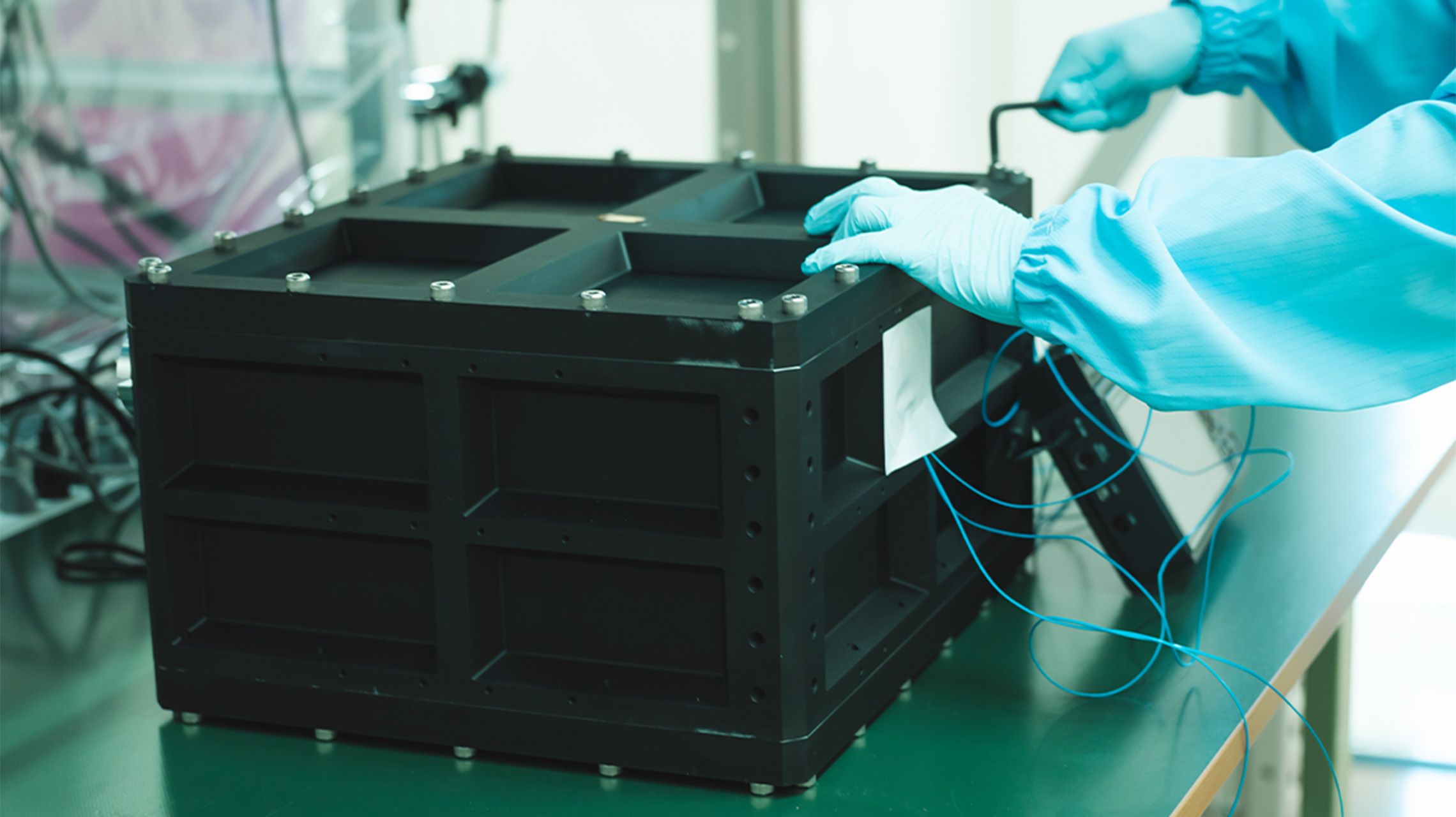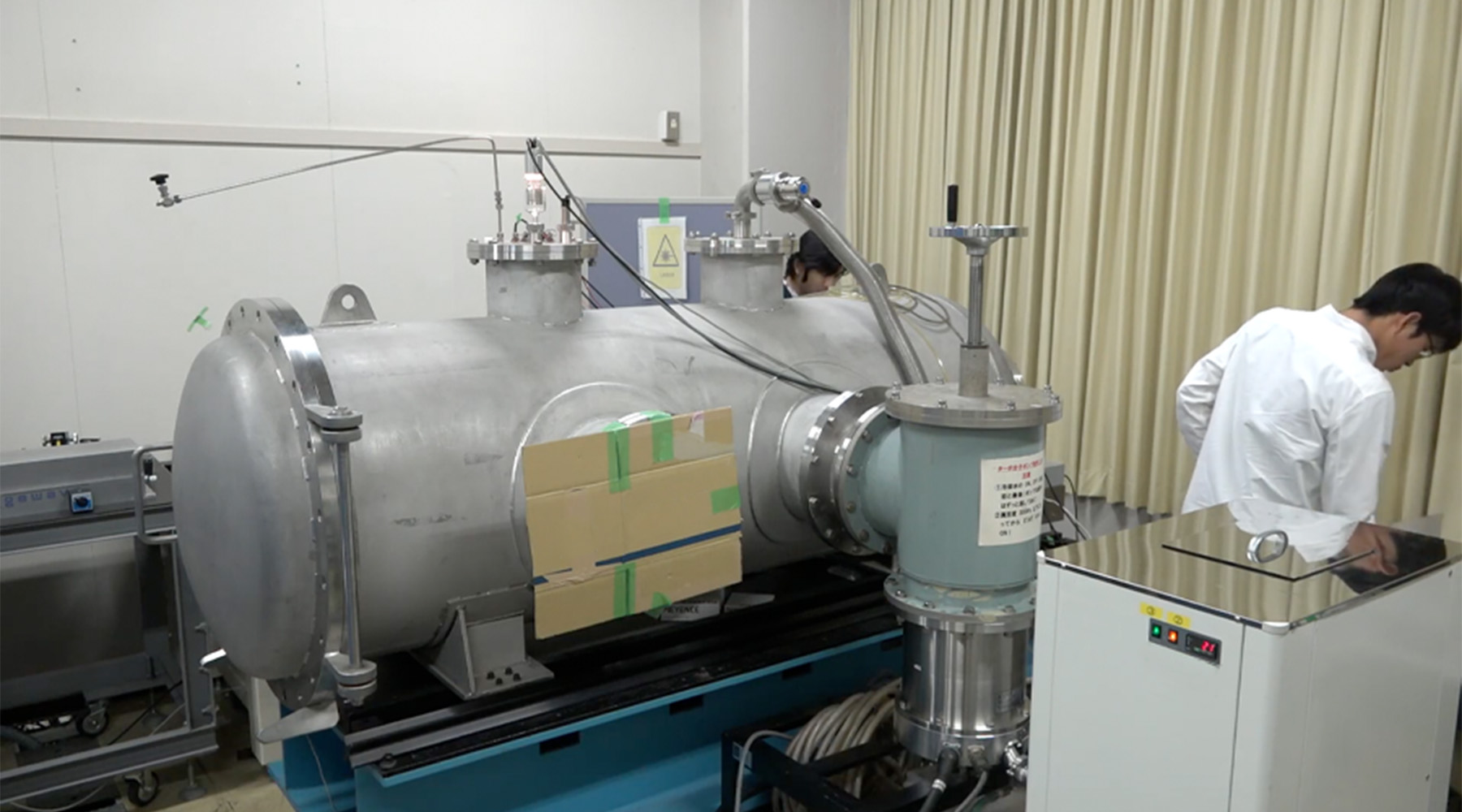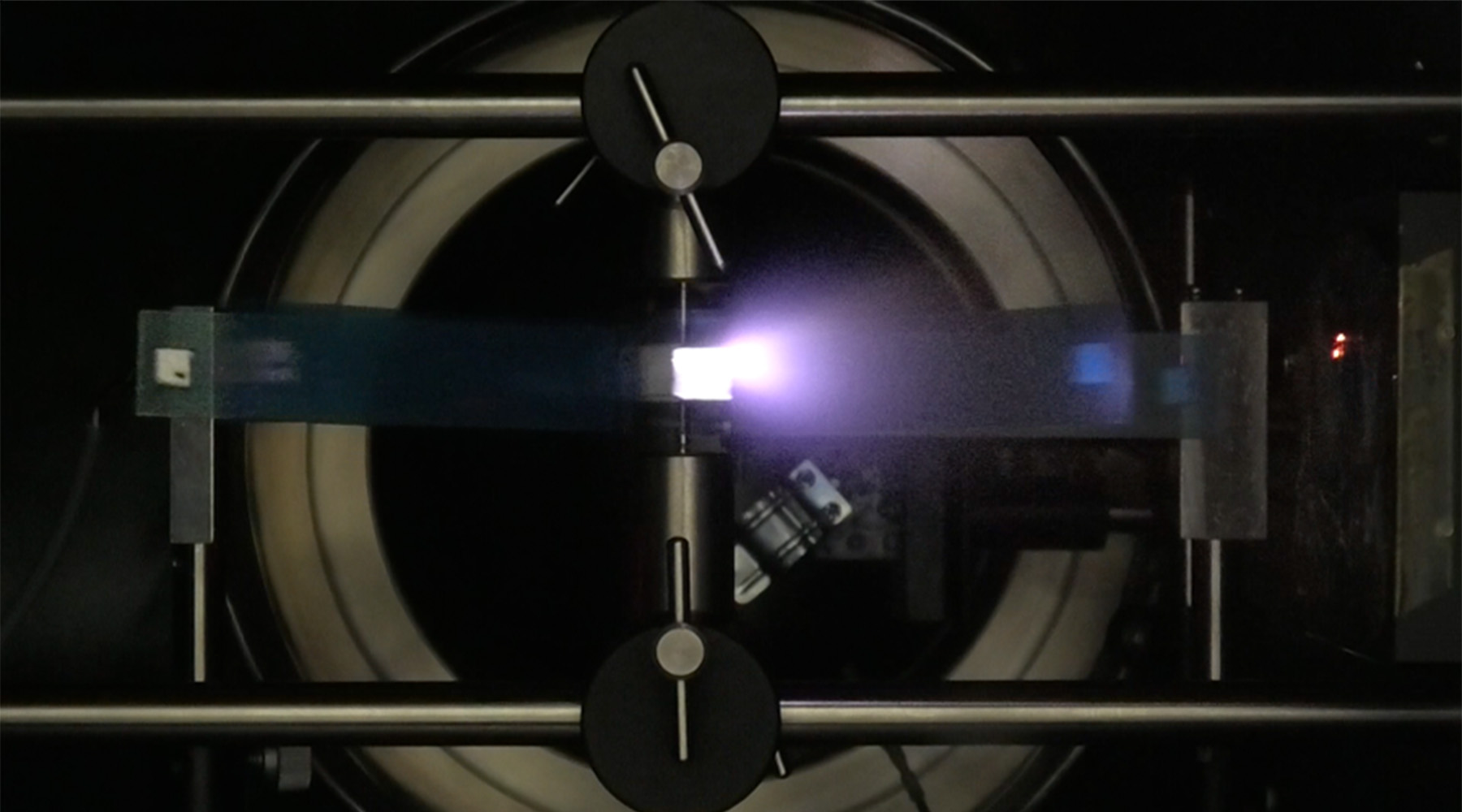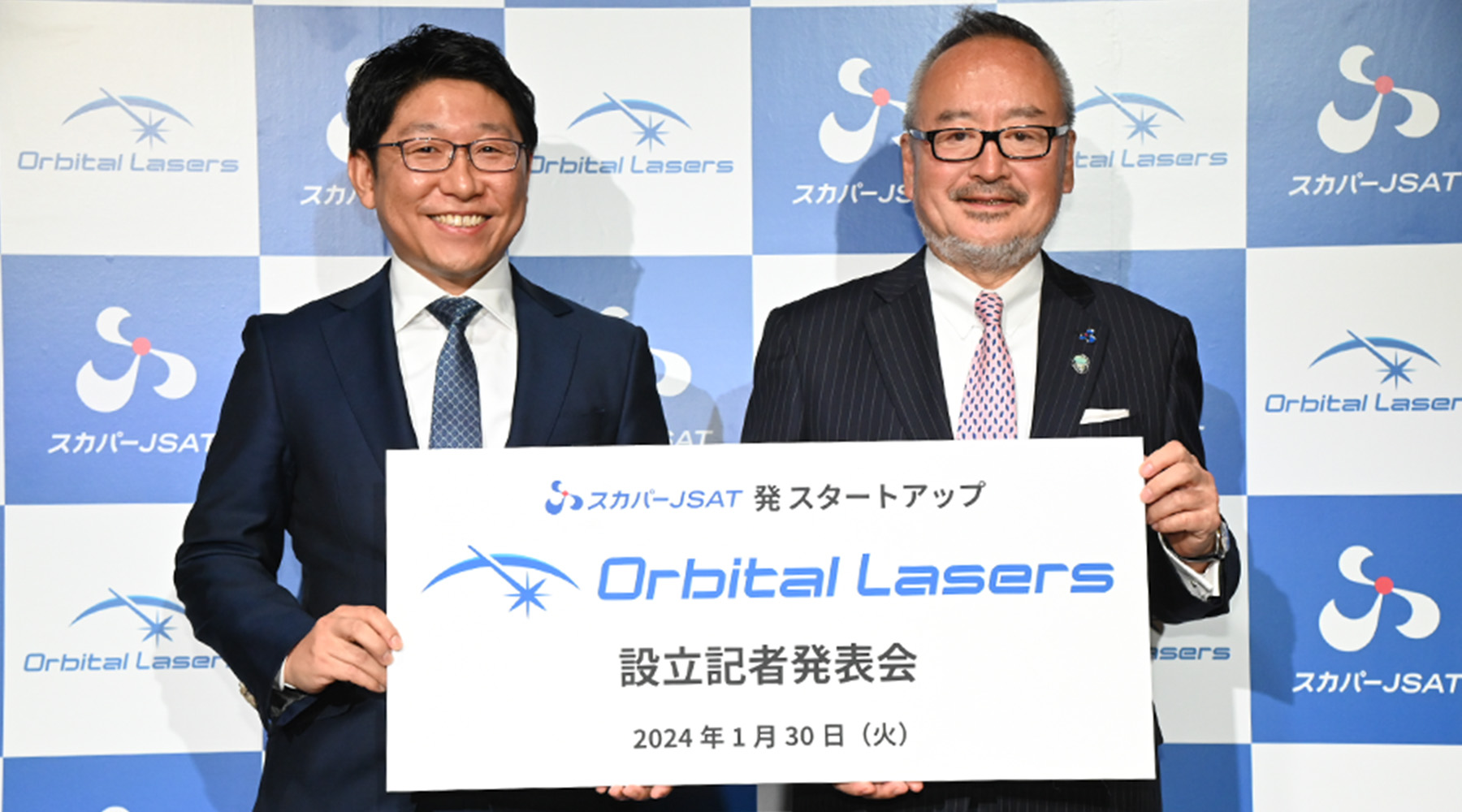
Our Story
株式会社
Orbital Lasers
創業の軌跡
The Road to Orbital Lasers
Orbital Lasersは、スカパーJSATからカーブアウトする形で創設した宇宙事業を行う企業です。宇宙用レーザーによるスペースデブリ除去や小型ライダー衛星コンステレーションによる地表面観測など、世界初の試みに挑んでいます。
ここでは当社創設までの経緯や事業化に至るまでの技術開発の軌跡を紹介します。
Orbital Lasers emerged as an independent venture from SKY Perfect JSAT, driven by the vision of advancing space innovation. We are at the forefront of world-first projects, from space debris removal with laser technology to monitoring Earth's surface through small LiDAR satellite constellations. Here, we share the story of our founding and the technological progress that led to the launch of our business.

Index
- 1.スペースデブリの現実に直面
- 2.スペースデブリ除去の解決策について
- 3.スカパーJSAT内のスタートアッププログラムに参画
- 4.開発チーム設立。小型かつ高効率な
宇宙用パルスレーザーを実現 - 5.事業化に向けた活動を推進
- 6.更なる技術的実現の蓋然性を追求
- 7.社会実装に向けてOrbital Lasers始動
- 1.Addressing the Challenge of Space Debris
- 2.Innovating Solutions for Space Debris Removal
- 3.Joining SKY Perfect JSAT's Startup Program
- 4.Establishing the Development Team and
Creating a Compact, High-Efficiency Space Laser - 5.Advancing Commercialization Efforts
- 6.Exploring Further Technological Feasibility
- 7.Orbital Lasers: Pioneering Social Implementation
2016

2016
スペースデブリの現実に直面
Addressing the Challenge of Space Debris
福島(現Orbital Lasers代表取締役)は、スカパーJSATにおいて約14年にわたり、衛星運用、衛星管制システムの構築、軌道制御、宇宙物体の衝突回避運用などに従事。衝突回避運用においては、米国の連合宇宙運用センター「CSpOC(Combined Space Operations Center)」との連携により、衛星に接近する物体のリスクを評価し、衝突回避の基準作成や実際の回避運用を担っていた。
特に、低軌道衛星運用業者との意見交換にて、低軌道における宇宙物体の接近を知らせるアラート数が急増していることに衝撃を受け、低軌道衛星での衝突回避運用が難しくなることを痛感し、スペースデブリ問題の深刻さを強く意識するように。
Tadanori Fukushima, now the Representative Director and CEO of Orbital Lasers, dedicated 14 years at SKY Perfect JSAT to managing satellite operations, developing satellite control systems, overseeing orbit management, and handling collision avoidance. He worked closely with the U.S. Combined Space Operations Center (CSpOC), evaluating and managing collision risks and establishing protocols for avoidance maneuvers.
During his interactions with operators of Low Earth Orbit satellites, Fukushima was alarmed by the sharp rise in collision warnings. This experience underscored the growing difficulty of preventing satellite collisions and heightened his awareness of the urgent space debris issue.
2017

2017
スペースデブリ除去の解決策について
調査・検証を開始
世界的にスペースデブリの問題が注目されるなか、将来的には膨大な数のデブリから逃れられなくなる未来を予見し、デブリの削減方法の調査を開始する。
スペースデブリの除去方法としては、衛星を活用して「銛で突き刺す」「網(ネット)で捕まえる」「ロボットアームで捕捉する」等の方法が存在しているが、福島は理化学研究所が発表した「大出力レーザーを用いて宇宙ゴミをデオービット(軌道離脱して除去)させる」という論文に着目。このアイデアをヒントに、まずは、レーザーの出力を下げつつも推力を維持し、時間をかけて大規模なデブリを除去していくという方法を模索することに。
Innovating Solutions for Space Debris Removal Starting Research and Validation
As the problem of space debris gained global recognition, Fukushima envisioned a future where the sheer volume of debris would make collisions unavoidable. Determined to find a solution, he began exploring different approaches to debris removal.
While several methods had been suggested, such as using satellites equipped with spears, nets, or robotic arms, Fukushima was particularly intrigued by a study from the RIKEN, Japan’s largest and most comprehensive research organization. The study proposed using high-powered lasers to deorbit and eliminate debris. Inspired by this approach, Fukushima focused on compacting laser terminals while maintaining sufficient thrust, with the goal of gradually removing large debris in a safe and cost-effective way.

2018

2018
スカパーJSAT内の
スタートアッププログラムに参画
2018年から、理化学研究所と議論を開始するとともに、アイデアを具体化させ、2019年に特許出願を実施。また理化学研究所に加えて、名古屋大学、九州大学、JAXAらとも連携して共同研究を進めていった。技術実現性のキーファクターであるレーザーアブレーションの推力を測定、衛星システムに要求される事項を検討し、構想が実現可能であることを証明する。さらに事業面においても、衛星コンステレーション事業者から宇宙用レーザーを用いてコントロール不能となった衛星を除去するニーズを確認。
Joining SKY Perfect JSAT's Startup Program
In 2018, with the support of SKY Perfect JSAT's Startup Program, Fukushima began collaborating with RIKEN to refine the concept, leading to a patent filing in 2019. He also launched joint research efforts with institutions such as Nagoya University, Kyushu University, and JAXA. Together, they measured the thrust generated by laser ablation, evaluated the satellite system requirements, and proved the concept’s feasibility. On the business front, they confirmed strong demand from satellite constellation operators for the removal of malfunctioning satellites using space lasers.


2020

2020
開発チーム設立。
小型かつ高効率な宇宙用パルスレーザーを実現
2020年、理化学研究所に「衛星姿勢軌道制御用レーザー開発研究チーム」を設置し、チームリーダーとして福島が着任。同チームでは衛星の主要なミッション機器であるレーザーアブレーションサブシステムの開発を推進。
新型コロナウイルスの影響による研究遅延があったものの、レーザー照射アルゴリズム開発やRPO(ランデブ/近傍運用)、ターゲット物体の姿勢推定の開発も進めていった。(2022年、原理検証モデルにおいて、世界で最も強い宇宙用パルスレーザーの小型化と高効率化を達成。)
Establishing the Development Team and Creating a Compact, High-Efficiency Space Laser
In 2020, Fukushima led the formation of a "Satellite Attitude and Orbit Control Laser Development Research Team" at RIKEN. The team’s goal was to develop the Laser Ablation Subsystem, a critical component for satellite missions.
The team made significant strides in laser irradiation algorithms, rendezvous and proximity operations (RPO), and target attitude estimation. By 2022, they successfully miniaturized and improved the efficiency of the world’s most powerful space-based pulsed laser, achieving proof-of-concept for their design.

2021

2021
事業化に向けた活動を推進
内閣府が主導する『軌道上サービスを実施する人工衛星の管理に係る許可に関するガイドライン』の検討のサブWGに福島が参加し、宇宙用レーザーを活用したデブリ除去衛星の許可に関する指針を盛り込む。軌道上サービスにおいて宇宙用レーザーの活用に関する指針を定めたものは、国が制定するガイドラインとして世界初の事例となった。
また、国内でデブリ除去を計画する事業者と共同で、デブリの回転を止めるためにレーザーシステムを導入するための概念検討を実施(2023年度まで継続)。
Advancing Commercialization Efforts
Fukushima contributed to the Japanese government's sub-working group on in-orbit servicing satellite management, playing a key role in incorporating regulations for space laser-based debris removal. This marked the first time national guidelines were established for the use of space lasers in orbit.
In partnership with domestic companies focused on debris removal, concept studies were conducted to explore the use of laser systems to halt debris rotation, with these efforts continuing through 2023.
2023

2023
さらなる技術的実現の蓋然性を追求
レーザー電源においても高い性能を達成。さらなる効率化の目処が立つ。レーザー照射アルゴリズム、RPO運用、ターゲットの姿勢推定においても精度が大きく向上し、システムとしての技術蓋然性が高まる。また宇宙用レーザーを活用した新たな事業として衛星ライダー事業を構想。
Exploring Further Technological Feasibility
The team made significant progress in enhancing laser power systems and improving overall efficiency. Precision advancements in laser irradiation algorithms, RPO operations, and target attitude estimation further bolstered the system’s technological viability. Additionally, a new initiative was conceptualized: Satellite LiDAR Services, utilizing space lasers to provide high-precision altitude measurements.
2024

2024
社会実装に向けて
株式会社Orbital Lasers始動
「事業」と「技術」の両面で実現の蓋然性が高まったことから、2024年、スカパーJSATからカーブアウトする形で新会社「Orbital Lasers」を創設。「スペースデブリ除去事業」および「衛星ライダー事業」のサービスを行うため、衛星全体のシステム開発を推進中。
Orbital Lasers: Pioneering Social Implementation
With strong feasibility on both the business and technological sides, Orbital Lasers was officially established in 2024 as a spin-off from SKY Perfect JSAT. The company is now focused on developing complete satellite systems to support its Space Debris Removal and Satellite LiDAR business.

